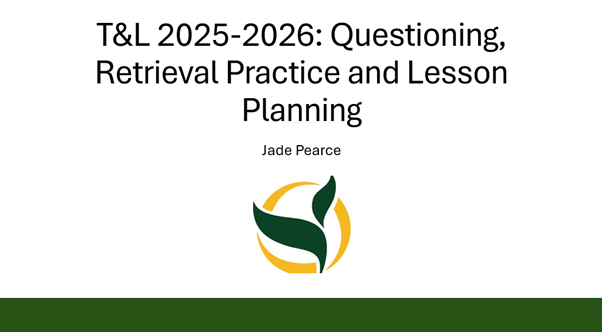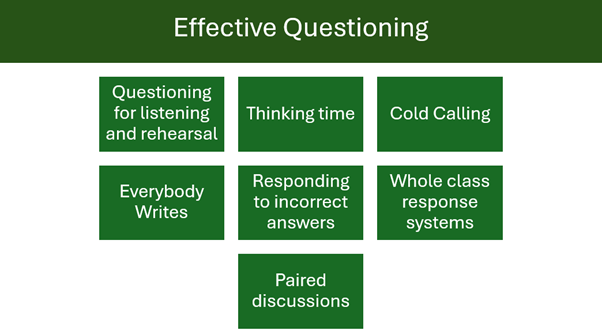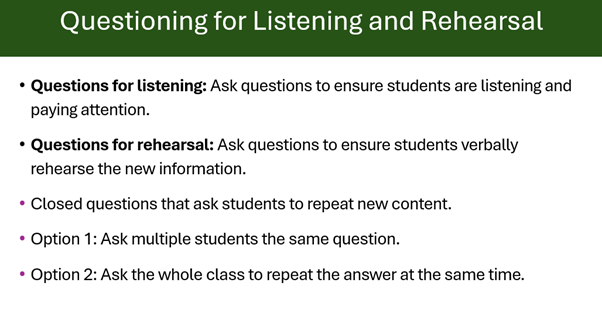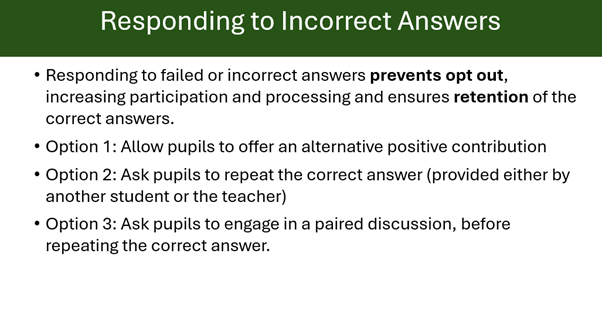
Trust Head of Education. Evidence Lead in Ed. NPQH. Primary governor. FCCT. NPQ facilitator. Passionate about evidence-informed practice & school improvement.
3 subscribers
How to get URL link on X (Twitter) App





 We looked at questioning inc
We looked at questioning inc https://twitter.com/pearcemrs/status/18941524630552250431. In maths, pupils completing initial independent practice on mini white boards, which they held up to the teacher when they completed each question. The teacher checked the answer, telling them to move on if it was correct…

https://twitter.com/aimeetinkler/status/1889762415580971124Our first session looked at the reasons for developing a school/Trust framework for T&L inc the importance of: a shared language for T&L, a shared and consistent understanding model of excellence in T&L, equitable CPD provision and consistency in quality assurance.









 To engage in thinking, answering q’s and positive habits of discussion (building on others’ responses, etc) as soon into the session as possible.
To engage in thinking, answering q’s and positive habits of discussion (building on others’ responses, etc) as soon into the session as possible. 



 redundant info from explanations and resources, not splitting attention, using both channels of the working memory, using human movement & ensuring info is not transient.
redundant info from explanations and resources, not splitting attention, using both channels of the working memory, using human movement & ensuring info is not transient. 




 @Inner_Drive 2. How to embed this framework: baselining current practice, iding priorities, creating action plans, providing CPD & guidance mats, allowing time for subjects/phases to contextualise, monitoring, providing follow up CPD, coaching, mentoring & peer support, sharing best practice.
@Inner_Drive 2. How to embed this framework: baselining current practice, iding priorities, creating action plans, providing CPD & guidance mats, allowing time for subjects/phases to contextualise, monitoring, providing follow up CPD, coaching, mentoring & peer support, sharing best practice. 

 To implement strategies effectively teachers have to understand the mechanics - HOW and WHY these strategies work, and have the opportunity to tailor these strategies to their context (subject/phase/students).
To implement strategies effectively teachers have to understand the mechanics - HOW and WHY these strategies work, and have the opportunity to tailor these strategies to their context (subject/phase/students). 


 1. The school’s self-review should determine their self-evaluation and this should then directly feed into/set the school development plan.
1. The school’s self-review should determine their self-evaluation and this should then directly feed into/set the school development plan. 

 Consistent evidence-informed T&L Principles are crucial for giving colleagues within and across schools a shared language and understanding of excellent T&L, allowing for high quality teaching in all classrooms, an equitable CPD offer and consistency in quality assurance.
Consistent evidence-informed T&L Principles are crucial for giving colleagues within and across schools a shared language and understanding of excellent T&L, allowing for high quality teaching in all classrooms, an equitable CPD offer and consistency in quality assurance. 


 PD was see as more effective when:
PD was see as more effective when: